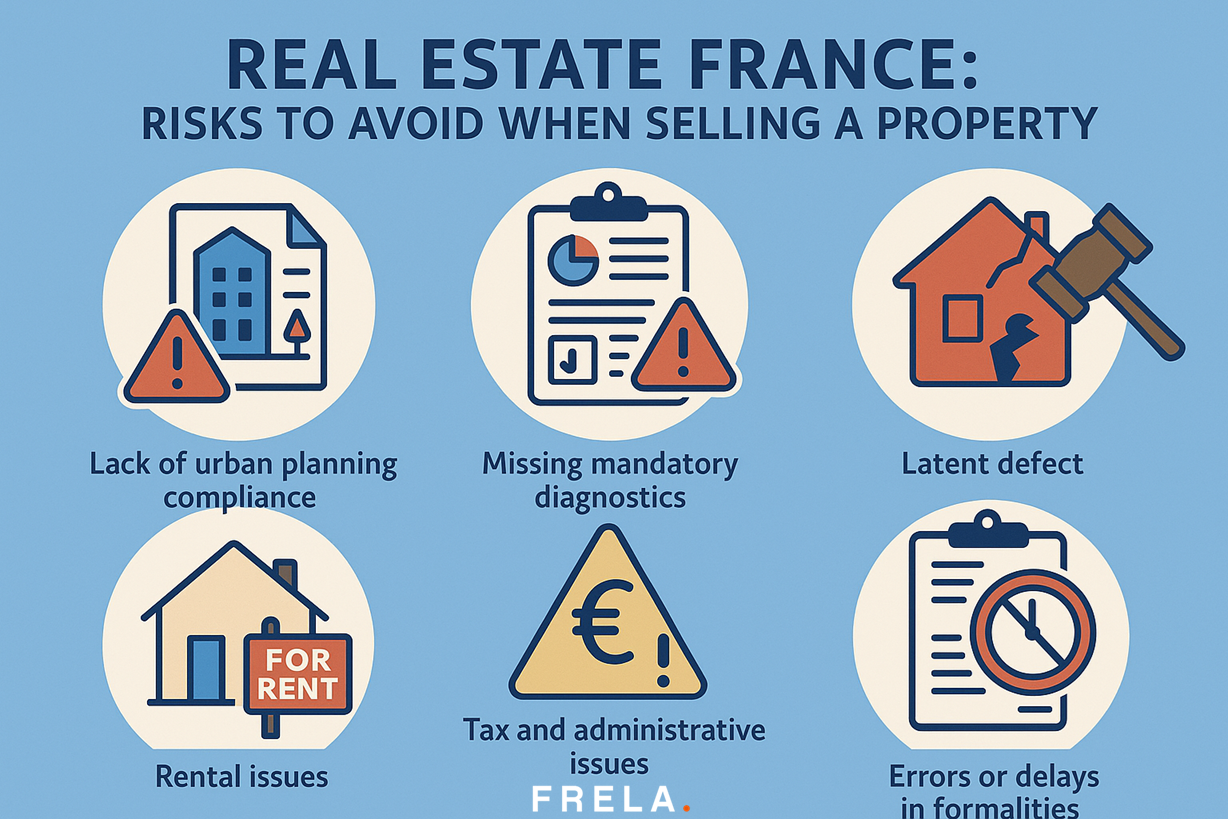The transfer of a property in France by donation
The transmission of real estate by donation is a legal act that allows the donor to transfer ownership of a property to a donee, without any financial compensation. This type of transmission is governed by specific legal requirements and conditions in order to be valid.


Donation: Definition and Conditions
A donation is a legal operation that allows a person to give a property to another person without any financial compensation. It can apply to both movable and immovable property and must be made irrevocably, meaning that the donor cannot take back the donated property.
For a donation to be valid, it must meet certain conditions. First, the donor must be of legal age and possess mental capacity at the time of donation. Second, the donee must accept the donation either by taking possession of the property or by signing an acceptance document. Finally, it must be formalized by a notarial deed, which guarantees the authenticity and validity of the donation.
Steps to Follow for the Transmission of Real Estate by Donation
The transmission of real estate by donation must follow certain steps to be valid. First, the donor must contact a notary to formalize the donation by notarial deed. The notary will then prepare the deed of donation, gathering all the necessary information about the donated property and verifying that all validity conditions are met.
Once the deed of donation is drafted, the donor and donee must sign the deed in the presence of the notary. The notary will then publish the donation at the land registry, to ensure the opposability of the donation to third parties.
Finally, the donee must pay the donation tax, which is calculated based on the value of the donated property and the relationship between the donor and the donee. The donation tax can be paid by either the donor or the donee, according to their choice.
Legal Rules to Follow for the Transmission of Real Estate by Donation
The transmission of real estate by donation is governed by specific legal requirements and rules that must be followed for the donation to be valid. First, the donor must be of legal age and possess mental capacity at the time of donation. The donor must not have been coerced or deceived into giving away the property.
Second, the donation must be made without consideration, meaning that there can be no financial or other compensation exchanged between the donor and the donee. Otherwise, the donation could be considered a disguised sale.
Finally, the donation must be formalized by a notarial deed, which must contain all the information about the donated property, such as its description, address, market value, etc. The notarial deed must also specify the conditions of the donation, such as the existence or not of a usufruct, a reserve of usufruct, or a charge on the property.
Regarding the declaration of the donation, in the case of a donation by notarial deed, it is the notary who takes care of the declarative procedures.
Fiscal Rules for the Transmission of Real Estate by Donation
Donation Tax
The transmission of real estate by donation is subject to donation tax, which is calculated based on the value of the donated property and the relationship between the donor and the donee. This tax can be paid by either the donor or the donee, according to their choice.
Notarial Fees
In the case of a donation by notarial deed, you will have to pay notarial fees. The amount of the fees you must pay to the notary is proportional to the full ownership value of the property donated.
The transmission of real estate by donation is a complex legal act that requires following certain formalities and conditions to be valid. For this reason, it is advisable to seek the assistance of a lawyer who can guide you through all the steps of the donation and help you avoid any legal or fiscal pitfalls.
About the Author :
Business lawyers, bilingual, specialized in acquisition law; Benoit Lafourcade is co-founder of Delcade lawyers & solicitors and founder of FRELA; registered as agents in personal and professional real estate transactions. Member of AAMTI (main association of French lawyers and agents).
FRELA : French Real Estate Lawyer Agency, specializing in acquisition law to secure real estate and business transactions in France.
Paris, 19 Rue du Colisee, 75008 Paris
Bordeaux, 78 Cours de Verdun, 33000 Bordeaux
Lille, 40 Theater Square, 59800 Lille

This article is provided for general information only and may not reflect the most recent legal or tax developments. It does not constitute legal advice. Please contact us for personalised guidance before making any decision.




